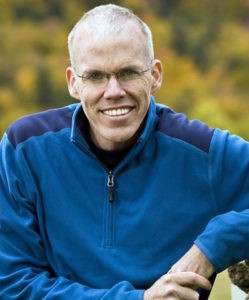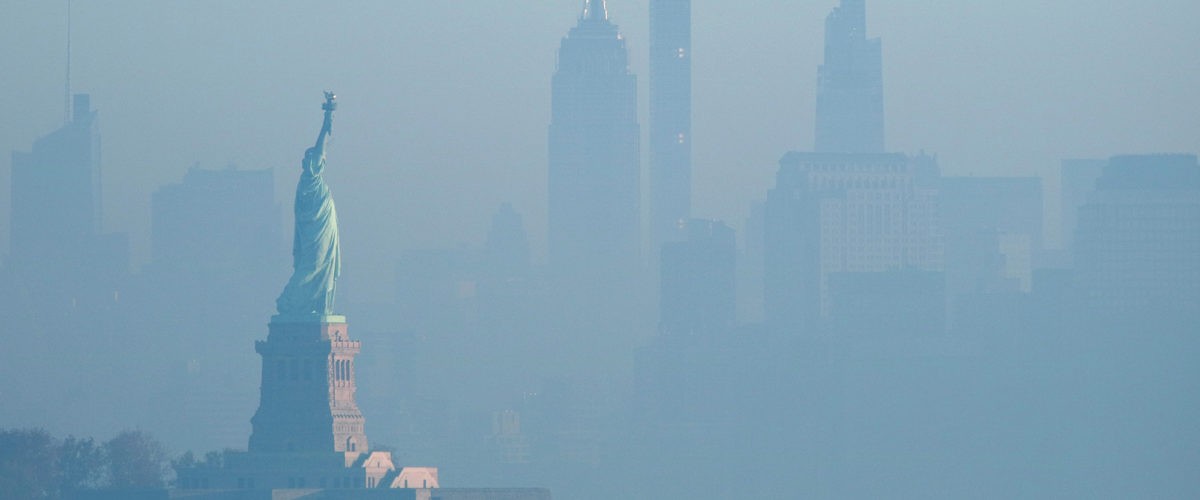Natural disasters sparked by worsening global climate change could lead Americans who are hostile toward refugees and migrants to embrace more compassionate attitudes on immigration, an asylum advocate believes.
Swapna Reddy, co-founder and co-executive director of the Asylum Seeker Advocacy Project, also known as ASAP, spoke during a Sept. 24 webinar hosted by Lutheran Immigration and Refugee Service. That event was titled “Just Movement: Creating Equitable Pathways to Migration in the Wake of Climate Disaster.”

Swapna Reddy
The U.S. “is not immune to climate disaster and it’s not clear that this country will always be a net receiver rather than a net sender when it comes to people seeking asylum due to climate,” Reddy explained. “We may be the asylum seekers of tomorrow, so what are the policies we hope other countries will have to receive us if that’s the case?”
She was joined in the discussion by fellow panelists Bill McKibben, author and co-founder of 350.org, and Maxine Burkett, senior adviser to John Kerry, U.S. special presidential envoy for climate change.
The hour-long event moderated by LIRS President Krish O’Mara Vignarajah explored how the current state of climate change is driving global migration trends and what steps faith groups and individuals can take to participate in addressing both challenges.
Reddy said it’s becoming increasingly difficult to differentiate between migrants motivated by natural disasters and those fleeing their homelands because of war or economic instability.
“Political displacement and climate displacement are not two mutually exclusive things but often the same issue,” she explained. “If there is a country that has a lot of agricultural workforces and it becomes impossible to farm, and gangs or some other kind of harmful thing moves in . . . governments can collapse.”
Estimates project 1 billion people around the world are affected by slow-moving or sudden natural disasters caused by climate change, she said. “We’re seeing this a lot. We’re seeing this in Central America, we’re seeing it all over the world.”

Krish O’Mara Vignarajah
Climate change already has been documented as a major cause of human displacement, including in the United States, where hurricanes, wildfires and other natural disasters have displaced 10 million Americans since 2008, Vignarajah said. Globally, 200 million people are projected to experience some length of displacement by 2050.
While not all such cases require international relocation, Vignarajah added, those who come to the U.S. for shelter encounter polices that are “incomplete or woefully inadequate” in recognizing the validity of climate challenges as legally recognizable causes of immigration and asylum.
More creative policies are needed to grant natural disaster victims entry into the U.S. and to remain when they cannot safely return to their nations in the near, medium or long term, she said.

Bill McKibben
McKibben picked up that theme, saying industrialized nations like the U.S. bear a greater burden for addressing climate-induced migration because they are most responsible for creating the ecological conditions that force people to flee their nations. Americans make up 4% of the world’s population but “we provide 25% of the gasses, so we are 25% responsible for the results, which are going to be enormous.”
Less-developed nations suffer disproportionately from climate change, McKibben said, citing a recent hurricane that wiped out 40% of Honduras’ economic capacity. By comparison, the effect of “Hurricane Katrina was about 1% of our GDP” in the United States.
The Red Cross and Red Crescent report that the numbers of people fleeing natural disaster now outstrips the number fleeing war.
“The need for some kind of global solidary in a way that we haven’t managed since the end of the Second World War is absolutely paramount,” McKibben said. “Yet, planning around it has not begun to reflect what is coming down the pipeline.”
“The need for some kind of global solidary in a way that we haven’t managed since the end of the Second World War is absolutely paramount.”
That planning must focus not only on how to meet the needs of migrants displaced by climate change, but also on fighting for laws and policies that reduce emissions, he said.
McKibben recommended increasing pressure on the powerful fossil fuels industry through protests and portfolio disinvestment. “This is a very live fight, and we do not know how it’s going to come out. At the moment, we are obviously losing badly.”
Slow progress is possible if renewable energies like wind and solar power can gain more traction, McKibben said. “But winning slowly on climate change is just a different form of losing.”

Maxine Burkett
Burkett picked up that thread, saying governments must do their part to reverse warming trends: “Aggressive emissions reduction is the starting point and ending point. This is critically important.”
The Biden administration is committed to that effort and to helping forge “a new kind of global economy not reliant on extracting and burning fossil fuels,” she reported, adding that unfortunately, unhealthy conversations about migration and climate change have hampered progress on those issues in the U.S.
Yet the basic truths remain, Burkett said. “We know warming will stop once we stop emitting. Prevention is still a top propriety.”
Related articles:
Christians and climate change: A chance to take the Bible seriously | Analysis by Chris Conley
On climate change, the political divide has widened as more Americans overall express concern
Climate change is heating up the terrorist conflict in Africa’s Sahel region
I wrote about climate change; now I’m hearing from mean Christians | Opinion by Susan Shaw


